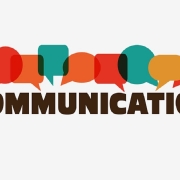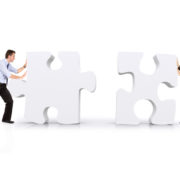Your Job Is Not Your Whole Identity
Reducing yourself to any single characteristic, whether it be your title or your job performance, is a deeply damaging act. Thanks to major shifts in the labor market, workers are switching organisations, functions, and even industries much more frequently than past generations. But as our careers take these dramatic leaps, we ourselves are not wholly reinvented. We often bring pieces of our past work experiences with us, making our work selves more like a manuscript than a whiteboard that can be wiped clean with each new role.
Are you a self-objectifier in your job or career? Ask yourself a few questions, and answer them honestly.
- Is your job the biggest part of your identity? Is it the way you introduce yourself, or even understand yourself?
- Do you find yourself sacrificing love relationships for work? Have you forgone romance, friendship, or starting a family because of your career?
- Do you have trouble imagining being happy if you were to lose your job or career? Does the idea of losing it feel a little like death to you?
If you answered affirmatively to any or all of these, recognise that you will never be satisfied as long as you objectify yourself. Your career or job should be an extension of you, not vice versa. Two practices can help as you reassess your priorities.
1. Get some space
Maybe you have been in an unhealthy relationship or two in your life but only recognised this when you had a break from it, whether voluntary or involuntary. Indeed, this human tendency probably contributes to the fact that most trial separations lead to divorce, especially when they last more than a year. Space provides perspective.
Use this principle in your professional life. To begin with, it should be the main goal of your vacation—to get a break from work and spend time with people you love. As obvious as this may sound, that means taking your vacation, and not working during it at all. Your employer should thank you for doing so.
In religious traditions, rest isn’t just nice to have; it is central to understanding God and ourselves. “For in six days the Lord made heaven and earth, the sea, and all that is in them, and rested on the seventh day,” the Book of Exodus reads. “Therefore the Lord blessed the Sabbath day and made it holy.” If God rests from work, maybe you should too.
Such a practice doesn’t have to be religious, and can be done in a lot of ways besides simply avoiding all work on Saturday or Sunday. For example, you can take a small Sabbath each evening by proscribing work and dedicating all your activity to relationships and leisure.
2. Make friends who don’t see you as a professional object
Many professional self-objectifiers seek out others who admire them solely for their work accomplishments. This is quite natural—it makes you feel good when a person you meet for the first time recognises you for your work. This type of relationship can easily become a barrier to the formation of healthy friendships, which we all need. By self-objectifying in your friendships, you can make it easier for your friends to objectify you.
This is why having friends outside your professional circles is so important. Striking up friendships with people who don’t have any connection to your professional life encourages you to develop out of work interests and virtues, and thus be a fuller person. The way to do this goes hand in hand with recommendation No. 1: Don’t just spend time away from work; spend it with people who have no connection to your work.
Perhaps challenging your own self-objectification makes you feel uneasy. It can freak you out. The reason is simple: We all want to stand out in some way, and working harder than others and being better at our jobs seems a straightforward way to do so. This is a normal human drive, but it can nonetheless lead to destructive ends. There are people that would rather be special than happy.
The great irony is that by trying to be special, we end up reducing ourselves to a single quality, and turning ourselves into cogs in a machine of our own making. Our work is our medium, and it becomes our message. We learn to love the image of our successful selves, not ourselves as we truly are in life. Don’t make this mistake. You are not your job. Take your eyes off the distorted reflection, and have the courage to experience your full life and true self.
Losing a Job That is Your Identity
If your job is your whole identity, losing it can be catastrophic. “But when your personal identity is heavily tied to your job, losing that job-even through no fault of your own, such as in an economic downturn or a restructuring- can seem catastrophic, causing an existential crisis or what the authors of the book Difficult Conversations call an ‘identity quake,’” says Rebecca Zucker of Harvard Business Review.
The Cell Phone in Our Pocket Prevents Work Separation
Like many of us, you may not be able to resist checking emails, chats, or texts, even on vacation. The 24-7 access is so tempting that most can never truly disconnect. Working from home further blurs the line. When our jobs are our identities, we think that we should be doing more of what we love.
But is it possible to be creative and connected to others with a constant work distraction in our pockets? When do we hit burnout? “When you’re overworked, you’re actually less productive,” says author Jeffrey Davis of Psychology Today. “When you get more sleep, develop a healthier work/life balance, and actually learn how to separate yourself from your work, you will find that you’re capable of not just enjoying more meaningful (and productive) work, but also of creating a more meaningful and well-rounded life.”
The ever-more-volatile state of our world means that plenty of leaps await us in the years ahead. Increasingly, our psychological health and career fulfillment will hinge on our ability to assess and execute transitions without betraying our authentic selves. The VME framework can help you predict how difficult it will be to dislodge incompatible aspects of your lingering identities, or what facets might be worth fighting to keep.
Given our current situation knowing that your colleagues or employees are best suited for this new scenario we find ourselves in. Finding the right talent, the best fit for the job and your organisation can be a very challenging task. It is now important to find out whether your managers or your team is well-equipped of working together from various locations. It requires deep knowledge of their personalities, strengths, weaknesses, interests, work style and other characteristics. Our technology and solutions will do the work for you, helping you discover if your people are resilient during times of hardship, if they are autonomous, if they are team players, without actual human contact. Given that our platform is cloud-based, everyone can use it from home as well. Humanity finds itself at a crossroad for various reasons now, why not help people discover and develop themselves from the comfort of their own homes?
Request a free demo:

Sources:
https://hbr.org/2022/11/when-changing-jobs-changes-your-identity
https://www.artemisconsultants.net/what-happens-when-your-job-becomes-your-identity/
https://www.monster.com/career-advice/article/how-to-handle-jobidentity-loss-hot-jobs











